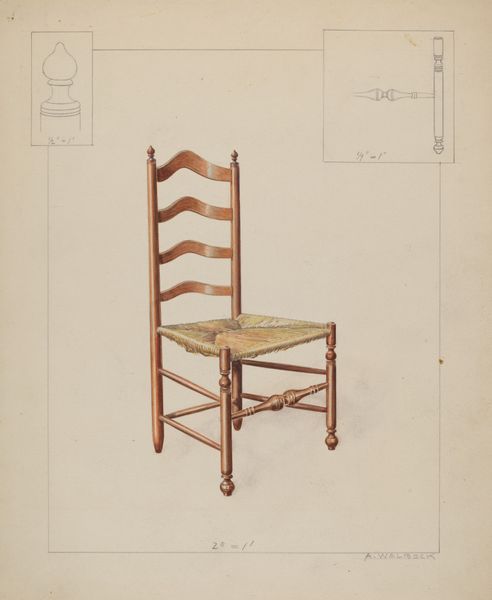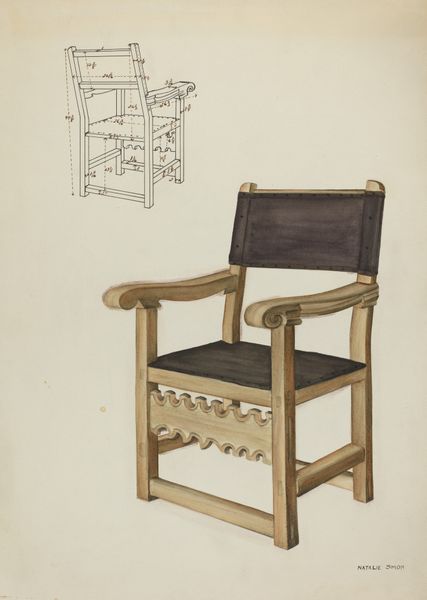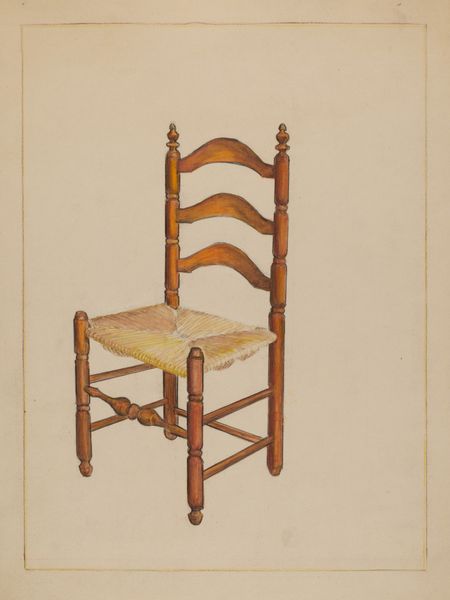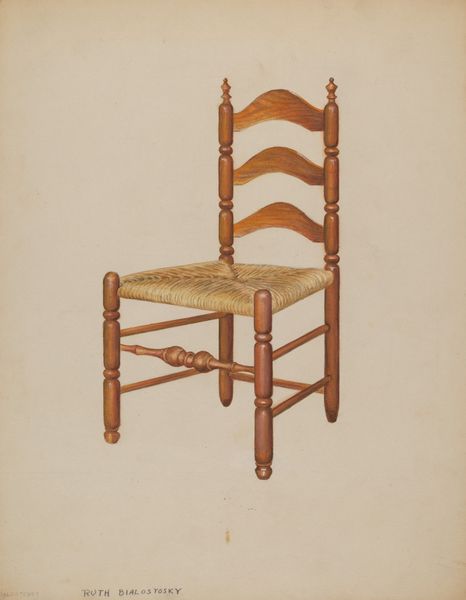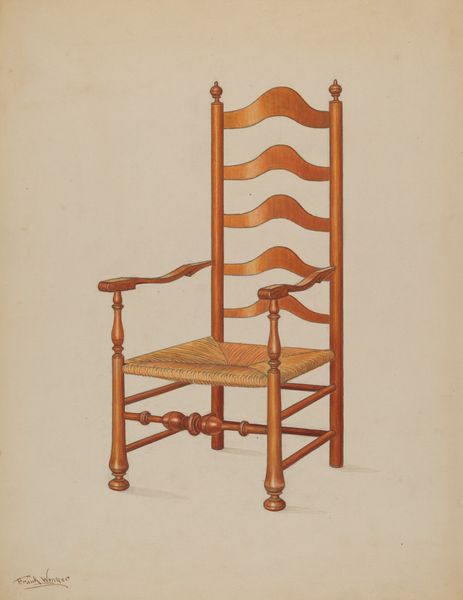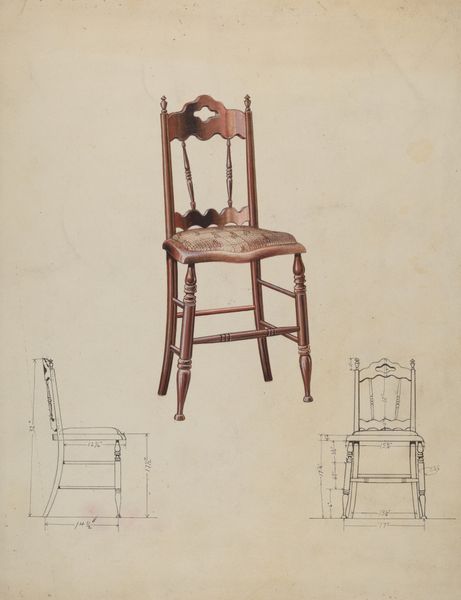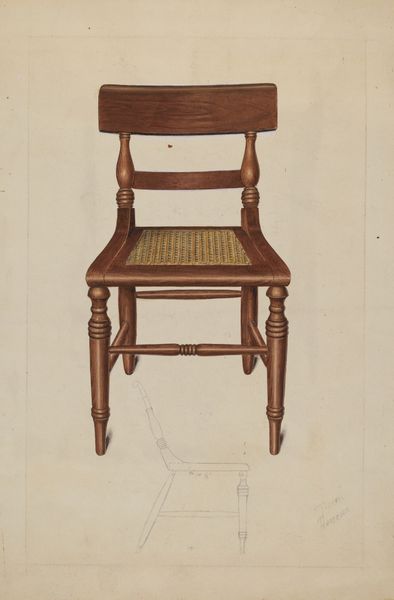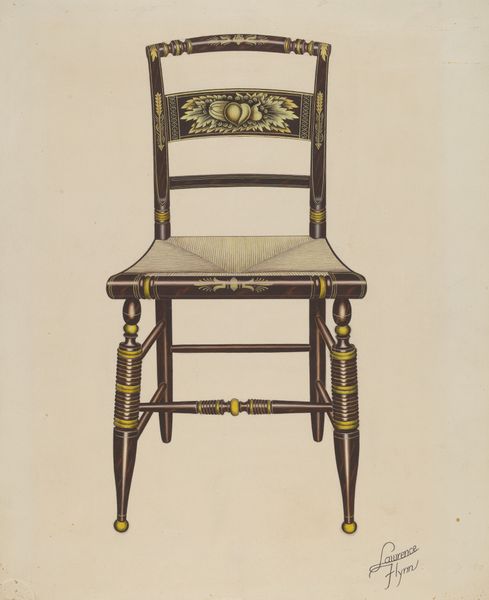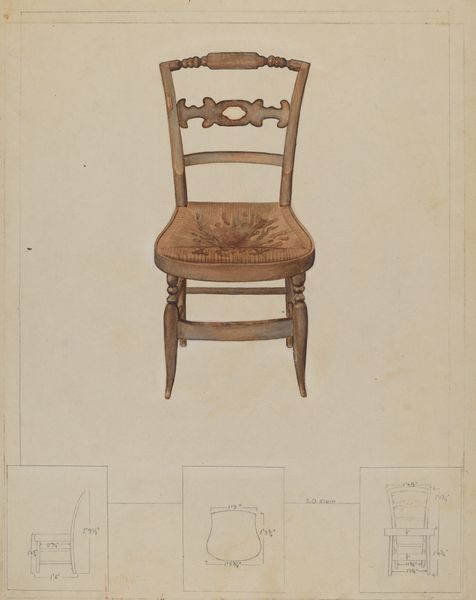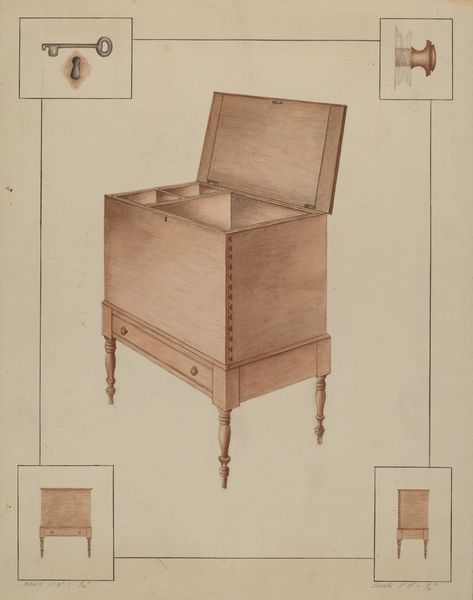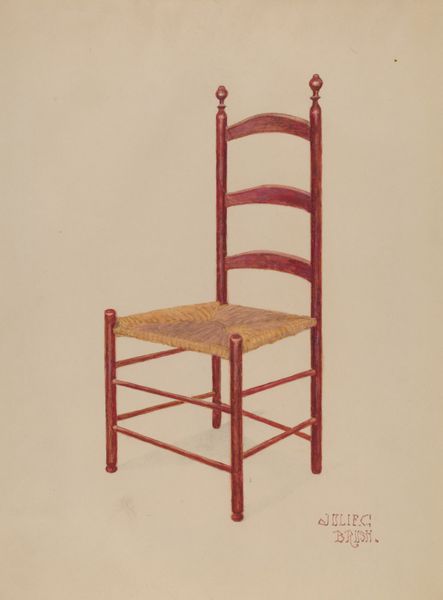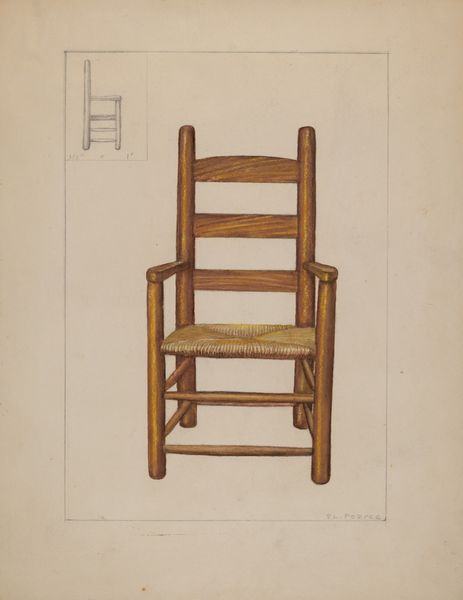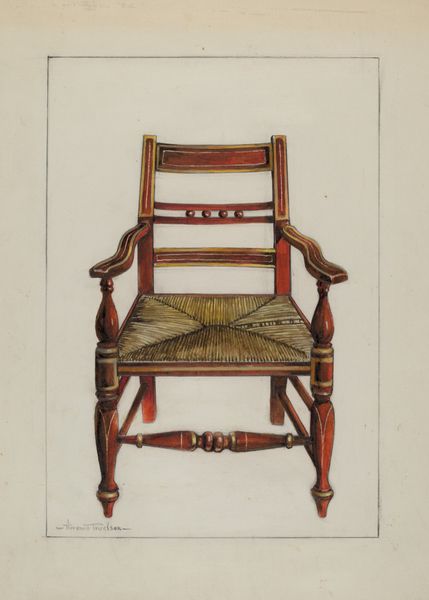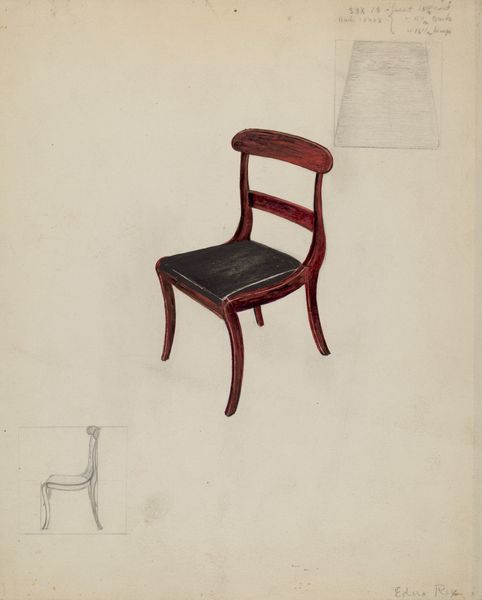
drawing
#
drawing
#
aged paper
#
toned paper
#
light pencil work
#
quirky sketch
#
pencil sketch
#
sketch book
#
personal sketchbook
#
sketchbook drawing
#
sketchbook art
#
watercolor
Dimensions: overall: 35.9 x 25.9 cm (14 1/8 x 10 3/16 in.) Original IAD Object: 46"high; 28"wide; 28"deep
Copyright: National Gallery of Art: CC0 1.0
Editor: This is Vera Van Voris’s "Chair," made around 1937. It looks like a drawing, maybe watercolor and pencil, on a kind of aged paper. It strikes me as a functional object rendered with a loving attention to its construction. What jumps out at you when you look at it? Curator: Immediately, I consider the labor involved. This isn't just a depiction; the inclusion of measured drawings suggests a direct engagement with design and manufacture. How does Van Voris's choice to depict this chair, with all its ornate details, intersect with notions of craft versus fine art during the 1930s? Editor: That's interesting. I hadn’t considered it in terms of craft. It seems almost like a technical drawing, but definitely has an artistic flair to it as well. What kind of social context might be informing the choice of materials used here? Curator: The economic constraints of the Depression era might be relevant. Was Van Voris making a statement about accessibility or perhaps reflecting the materials readily available? Or, perhaps, suggesting that even humble materials can be elevated through careful design and execution? I wonder how widely distributed her designs were? Were they meant to be enjoyed by the wealthy or were they possibly featured in pattern books? Editor: I hadn’t thought about the pattern book idea. That makes sense. It definitely shifts the work from fine art to something with a much wider purpose. Curator: Exactly! It forces us to re-evaluate where art meets the practical concerns of daily life. The production and consumption, essentially. Editor: This has been a really enlightening look at a simple sketch! Thinking about the materials and the artist's labor really opened up my understanding. Curator: For me, it underscores how even seemingly mundane objects can reveal larger truths about the culture that produced them.
Comments
No comments
Be the first to comment and join the conversation on the ultimate creative platform.
